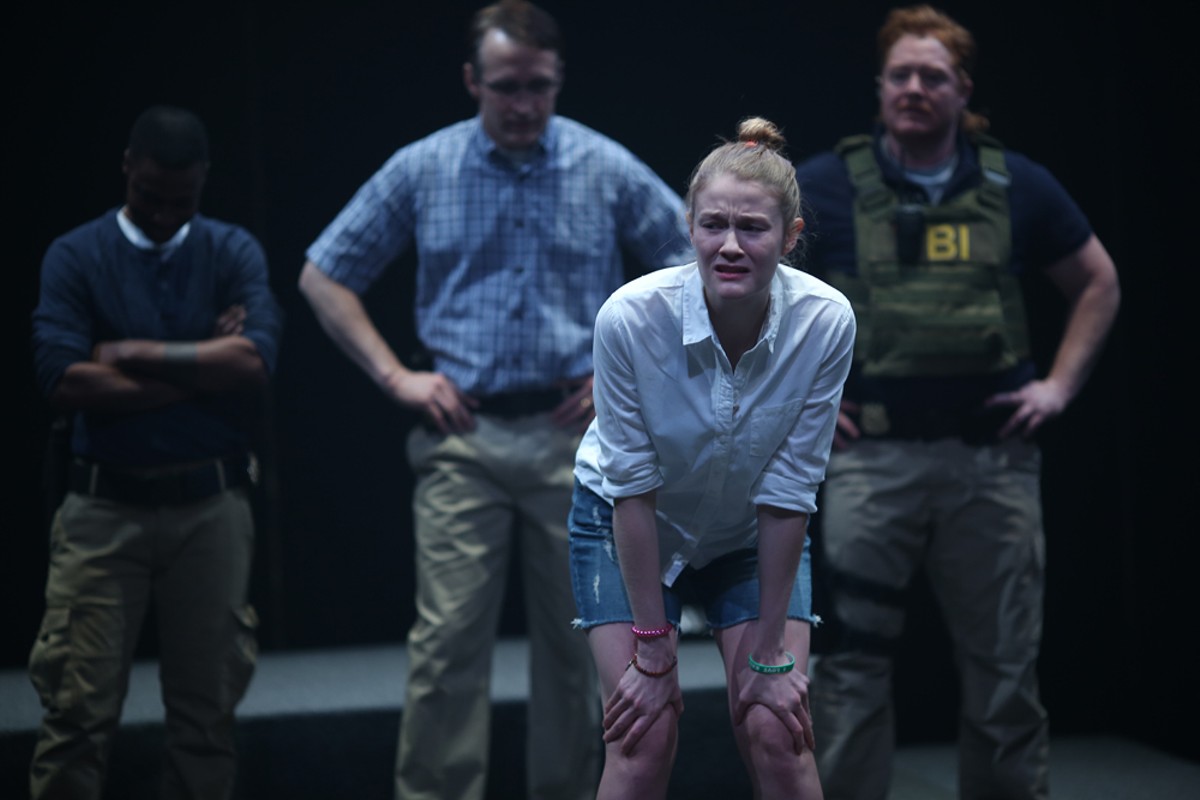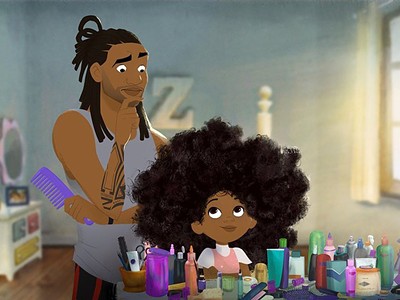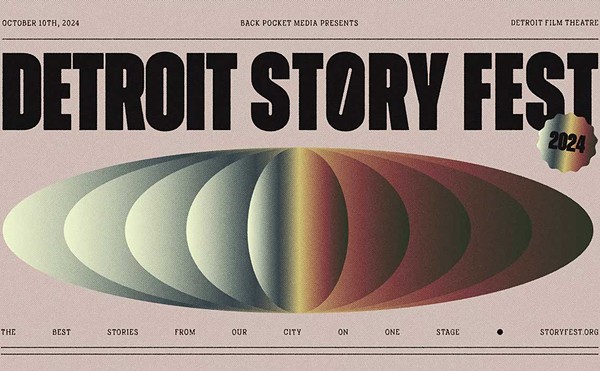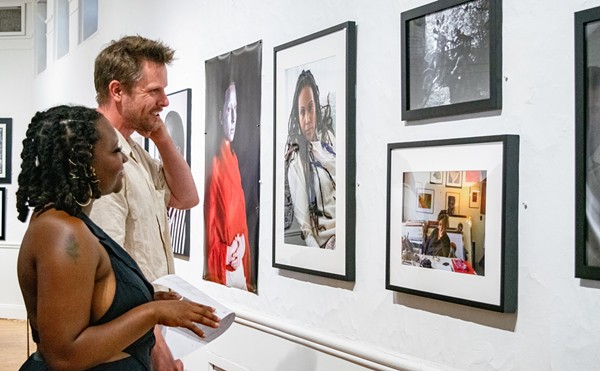Masculinity and internet radicalization, feminism, race, privilege, patriotism, and the refugee crisis — audiences in southeastern Michigan will have an opportunity to engage and explore these edgy topics in live theater for the next three weeks at the University Musical Society's latest series of performances, provocatively titled No Safety Net 2.0. The UMS's three-week long festival consists of three plays in theaters on the University of Michigan campus in Ann Arbor and an interactive installation at the Arab-American National Museum in Dearborn. Events take place from Jan. 22 to Feb. 9 and include workshops, Q&A discussions, and other interactive activities.
"It's experimental in terms of work and subject matter, but there is a place in our programming for this," says University Musical Society president Matthew VanBesien, particularly as many college students and millennials around the U.S. seek to understand and define "what is a safe space?"
"Our first No Safety Net venture, in 2018, showed there is a huge appetite for bold, social conscious work where there may not be clear answers but there may be strong feelings, opinions, and emotions," says VanBesien. The productions are all by writers and performers who have established reputations in experimental theater, including the esteemed Edinburgh Fringe Festival.
This year's opening production, The Believers Are but Brothers, is one example. It's written and performed by Javaad Alipoor, a Manchester, England-based writer of Iranian-British heritage who works as a director and performer in theater, TV, digital forms, and film. The play weaves the stories of three disaffected men who lack the money, power, or sex they think they deserve, and follows their journey to radicalization. The play was performed at Fringe Festival, where it won a "Fringe" award, and then again in London before going on a world tour.
There will be five performances, Jan. 22-26 at the Arthur Miller Theatre on the U-M North campus.
The second production, Is This a Room: Reality Winner Verbatim Transcription, was conceived as a play by Tina Satter, an experimental playwright and founder of Half Straddle, a Brooklyn-based ensemble performance group. The material is the literal unedited transcript of an FBI interrogation. Despite her unusual name, the play's subject, Reality Winner, is a real-life figure, a former U.S. Air Force linguist who was arrested and charged by the FBI in 2017 for leaking top-secret evidence of Russian interference in our voting system. Winner is currently serving a five-year sentence in a federal prison. Five performances will be from Jan. 29-Feb. 2, again at the Arthur Miller Theatre. Two panel discussions will be held in conjunction with this production: one, on Friday, Jan. 31, titled Reality Winner, Russian Election Meddling and the Future of America, and another with Reality Winner's mother, Billie Winner-Davis, to take place on Saturday, Feb. 1.
A third production, White Feminist, features Philadelphia-based writer and improvisational artist Lee Minora, who deftly employs satire to explore gender, race, morning talk shows, and #MeToo. Minora's work had a one-month run at the Edinburgh Fringe Festival in summer 2018. It will have nine performances from Feb. 3-9 at the Duderstadt Center on U-M's North Campus. A panel titled "Girl Talk: Race, Comedy and Feminism Now" will take place on February 8 at U-M's Pierpont Commons on North Campus.
As Far As My Fingertips Take Me, performed by Basel Zaraa, is a 12-minute interactive installation focusing on the refugee crisis. An audience member has a one-on-one interaction with Zaraa, who has been a refugee his whole life. Zaraa traces his family's history of dispersion and endless search for refuge on audience members' forearms in a performance conceived by Tania Khoury. Their arms touch, but, separated by a wall, they do not see each other. Ann Arbor performances will be at the Institute for Humanities from Jan. 24-Feb. 2 and in Dearborn at the Arab American National Museum from Feb. 4-9.
Safety Net 2.0 is more than an experiment with confrontational subject matter. As one of the oldest performing arts presenters in the United States, with 70 productions a year, UMS has wanted to experiment with a "festival" type format, meaning multiple performances happening at the same time, interspersed with workshops, Q&A panels, lectures, and other interactive opportunities. "An event like the Stratford Festival or the Edinburgh Fringe Festival is something we've talked about here and would like to aim for," says UMS programming manager Mary Roeder.
The festival was in the planning stages shortly before VanBesien took over as president of UMS in 2017, after his tenure as president of the New York Philharmonic Orchestra, and he's heavily invested in its success. "It's artistry first, born out of interesting subject matter," he says, and he believes it creates an interesting future for UMS offerings.
In its early development, there was some pushback on naming the festival "No Safety Net."
"The title was not necessarily beloved," Roeder says. But now she sees value in the prompt when working with sensitive material. She points out that the Reality Winner character is quite funny and warm, and Lee Minora is trained in improvisation and very comfortable interacting with an audience.
"All of the artists bring a certain amount of levity to their work," Roeder says. "Optimism is apparent in each of these performances."
No Safety Net 2.0 runs from Wednesday, Jan. 22, through Sunday, Feb. 9; various times and venues. See ums.org/no-safety-net for full schedule.
Get our top picks for the best events in Detroit every Thursday morning. Sign up for our events newsletter.






